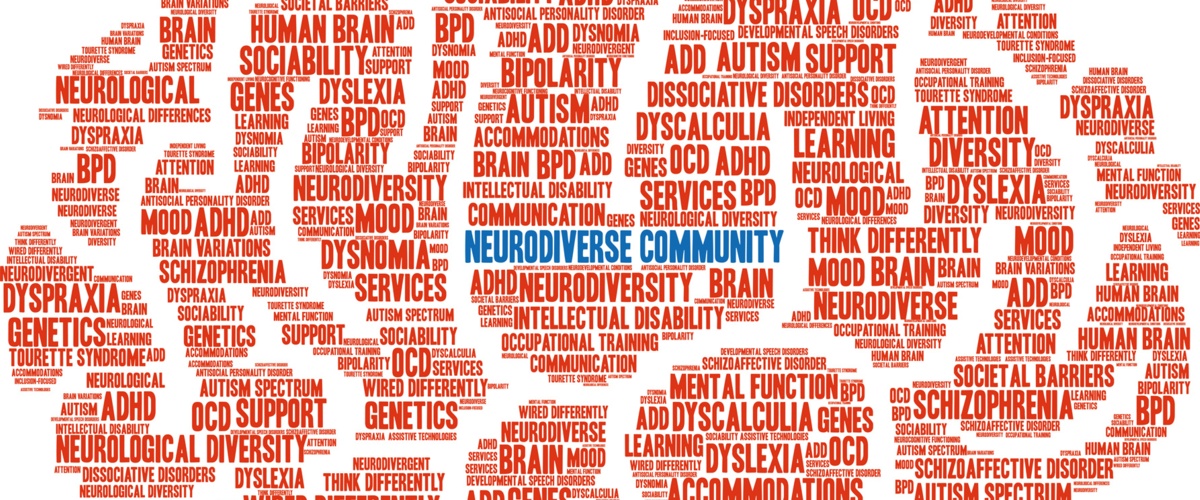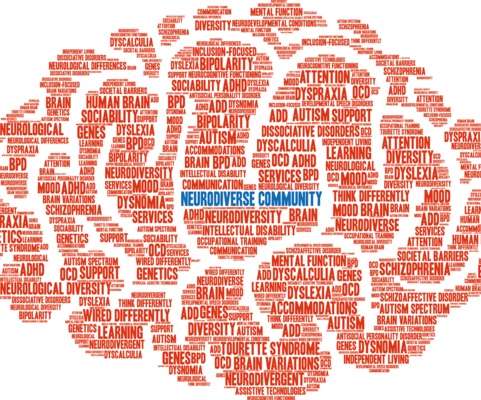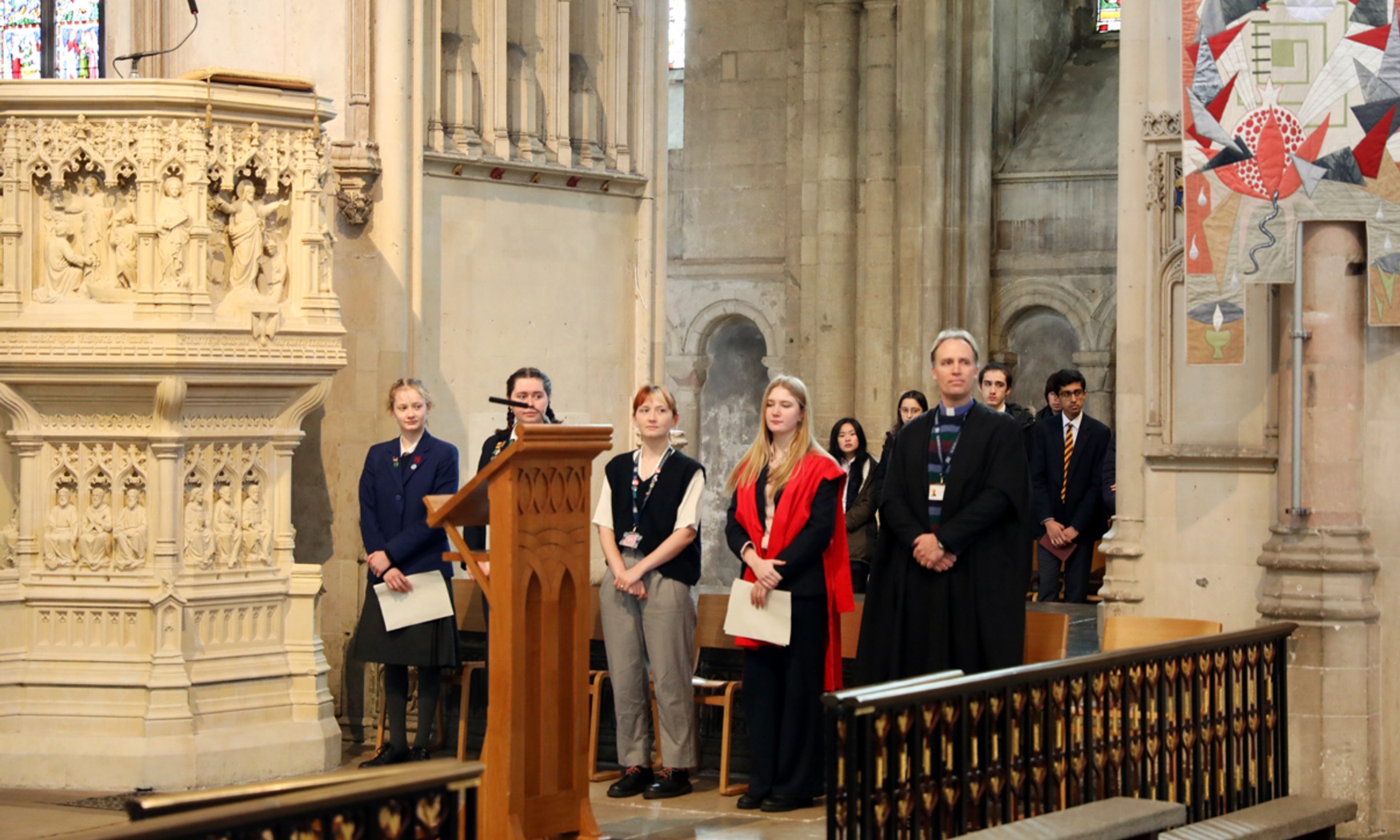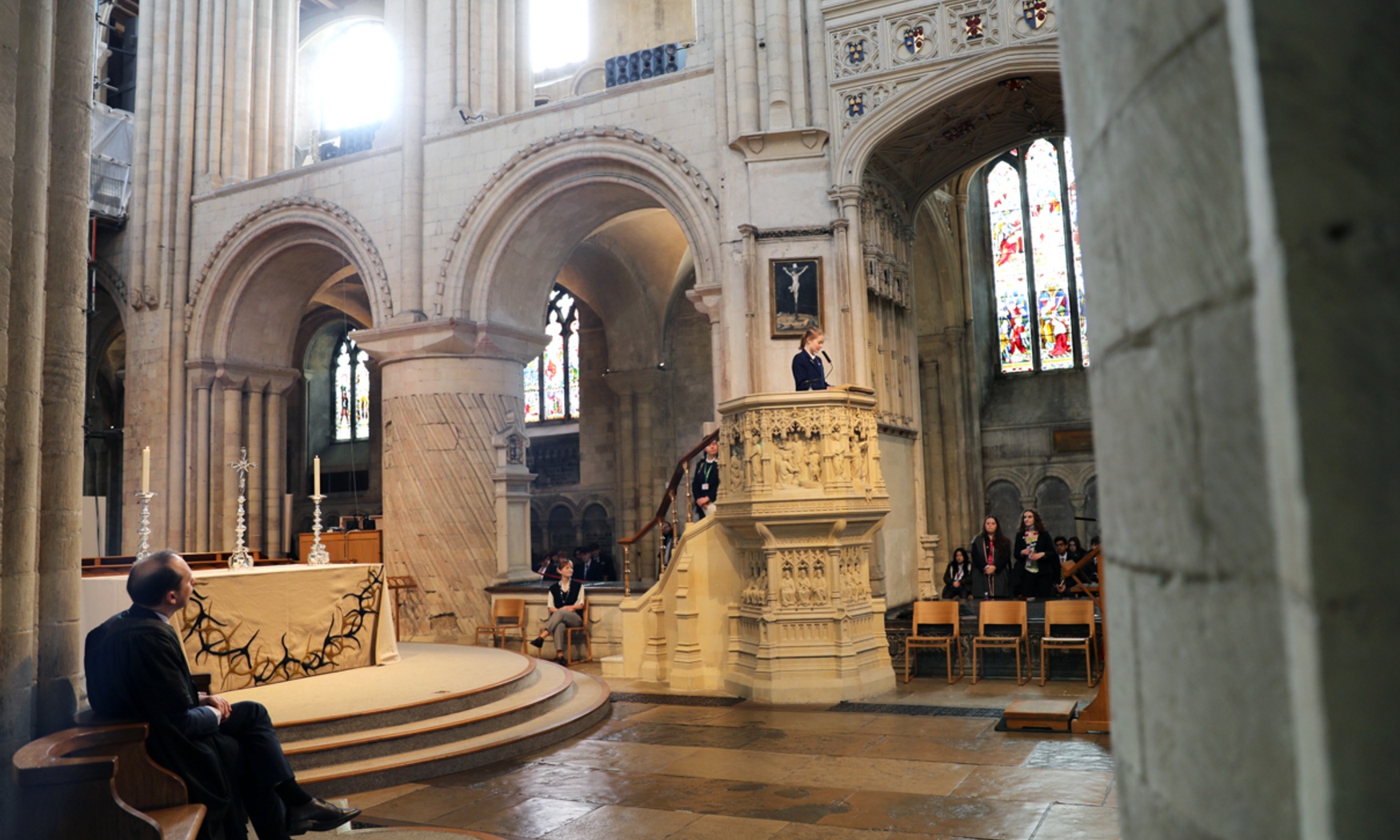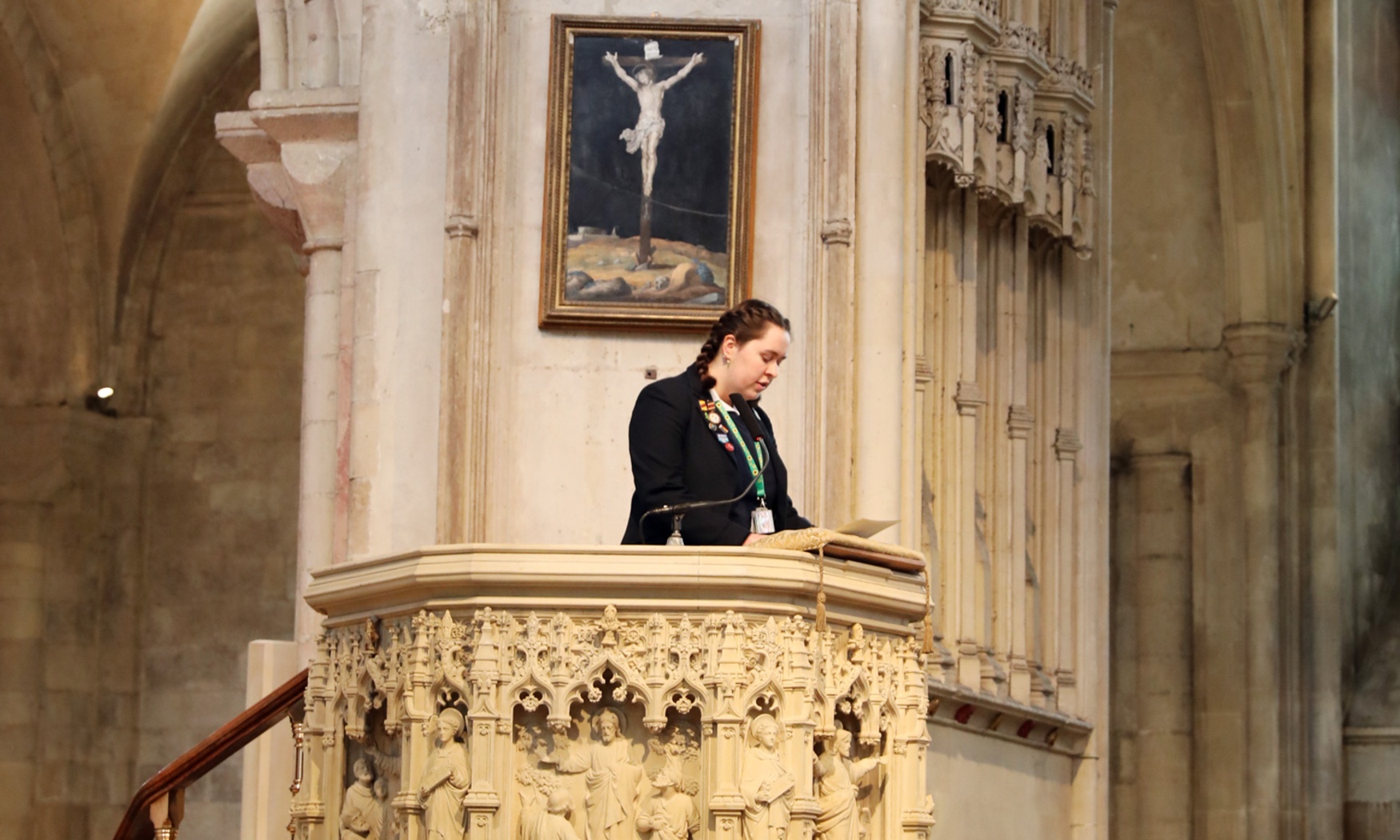As a part of Norwich School’s support of Neurodiversity Celebration Week, the neurodiversity group are interviewing Neurodiversity Champions at Norwich School and our final Champion of the week is Upper Sixth pupil, Betsy James.
Betsy, along with Anna Clayton, spoke at a special assembly this week to mark Neurodiversity Celebration Week. Presented below is a transcript of Betsy's wonderful address to the assembly.
The dictionary definition for neurodiversity is as follows: ‘the range of differences in individual brain function and behavioural traits, regarded as part of normal variation in the human population’ and while this is all well and good, it doesn’t make the subject itself very approachable. Calling neurodiverse conditions “out of the ordinary” doesn’t sound good either, as it suggests that there is something wrong with the brain if it functions just a tad bit differently to someone else’s. I prefer to think of neurodiversity as the diverse ways in which the brain can work and interpret information.’ This definition was coined by Judy Singer, an autistic sociologist in 1997.
The term neurodiversity is not easily pinned down as it encompasses a wide range of different diagnosis: ADHD, Autism, Dyspraxia, Dyslexia, Dyscalculia, Dysgraphia, and Tourette's syndrome. While these conditions may feel a million miles away to most of you, it’s important to celebrate neurodiversity because it increases inclusion; no one likes the feeling of being left out, especially when it’s because of something that cannot be changed, and Neurodiversity Celebration Week aims to spread the worldwide acceptance of neurodiversity. If you are not neurodiverse yourself, the experiences of those that are may feel entirely separate from your own; you might, for example, still be able to focus on a maths lesson even if you become aware of your sock being twisted in your shoe, but I promise you it is extremely easy to accommodate for those who are.
Talking and listening to neurodiverse people is key; listening to needs and wants is a really easy way to make those around you feel seen, and asking what simple accommodations or shifts could be made to make the day easier, whether that be lowering your speaking volume, finding a quiet and empty place to sit or getting someone a blanket so they feel safe, are massively impactful. These small acts may seem inconsequential and entirely meaningless to you, but for someone who needs that 5-minute breather, or the feeling of a blanket wrapped around their shoulders, it can make a world of difference.
I was diagnosed with autism in June of 2022 and growing up as autistic but without knowing it lent itself to some pretty interesting situations. Apparently, it isn’t the most usual response to cover your ears when you’re afraid of something, even if what you’re scared of isn’t making a noise. It also isn’t “normal” to have a panic attack at the age of 15 when you wake up in the middle of the night and discover your teddies have fallen out of your bed while you were sleeping. That, however, is MY normal. Being diagnosed late meant that my close friends came to understand my autism at the same time as I did, and we have learned together how to work around my different needs. I cannot express how much the support and love from my friends has meant to me over the past year; helping me calm down during anxiety attacks – perhaps randomly prompted because I suddenly feel my nails are a bit too long - or entertaining my manic ramblings about my new obsession, whatever that might be. I’ve never felt ostracised or excluded because of my autism and I know that that is an extremely privileged position to be in. Having a close support group that cushions and loves me when everyday life becomes a bit overwhelming is something that quite a lot of neurodiverse people don’t have and can’t even imagine having. Just being more understanding and asking what your neurodiverse friends need from you is an easy way to be a great friend. Neurodiversity doesn’t make people weird; it doesn’t make them annoying, and it shouldn’t alienate them from their peer group. It is simply a set of quirks and different needs that must be met; just like one person might know every Arsenal match score since 1996 and someone else might know the lore behind the entire Five Night’s at Freddy’s Franchise. Accepting and celebrating everyone’s differences and quirks is a much nicer alternative to labelling them abnormal.
In terms of everyday life, my everyday routines are essential to my wellbeing. Any slight shifts in my plans, whether that be the knowledge that I have to take public transport without mentally preparing myself for it first, or having a meeting that I didn’t know was happening and which gets in the way of the hour of reading I had scheduled in my brain, can really throw me off. I’m slowly learning to accept that occasionally small changes to my plans will happen, but it can be extremely hard to cope with and always completely exhausts me. Small things like that, along with other external stimuli, like noises, touch, smells, and the knowledge that I can’t plan for every possible outcome of the day, can make it seem like I don’t like being autistic. Don’t get me wrong, it is hard and sometimes frightening, but I love being autistic; the way my brain works is so unique, and I wouldn’t change it for the world. It is integral to what makes me, me. If I was neurotypical (which is what you are if you don’t fall into a category of neurodiversity), I wouldn’t be the same person. I wouldn’t forget the simplest of things, I wouldn’t ramble on and on about something that you don’t really care about, but I also wouldn’t have my obsessive passion for books, the heightened empathy I feel for others, a total ease with being on stage delivering a well-rehearsed line, and I wouldn’t know how to create a safe space for me and those around me. In short, being autistic is part of who I am; it isn’t the only defining feature, but it’s a pretty important one and I wouldn’t have it any other way.
Even if you’ve been bored out of your mind and haven’t been listening, have been thinking ‘this doesn’t apply to me’ or will joke about this assembly later with your friends, I hope this assembly has made you think. I hope you come away understanding that neurodiversity is an approachable topic; it isn’t something to fear and conversations with those that are neurodiverse are essential to making the world a safer and more comfortable place. Let’s celebrate everyone for who they are.
Thank you for listening.
Photo credits: Finn Pond - Close Up

